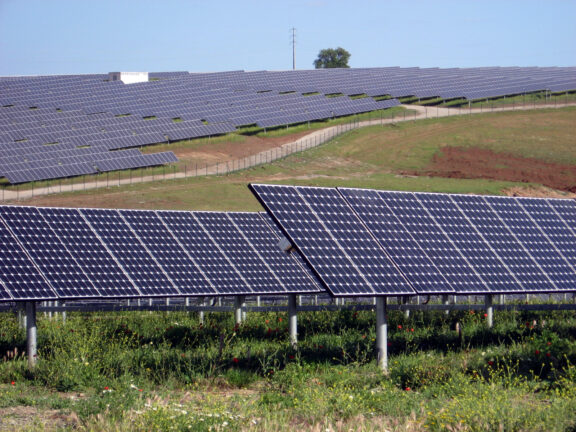After the new European Parliament took office in the summer of 2024, the Commission proposed the climate target for 2040. The second part of emissions trading system, ETS2, is due to come into effect in 2027. Through Clean Industrial Deal, the EU wants to turn decarbonisation into a driver of growth for European industries.
A number of climate-related important legislative proposals or amendments have seen the light of day over the past year. In the Parliament, however, the move towards decarbonization is not straightforward; in some cases, lengthy political battles are likely.
Heated debates ahead
In early July 2025, the Commission proposed an amendment to the European Climate Law to set an EU climate target for 2040. Its core is recommendation to reduce the EU’s net greenhouse gas emissions by 90 per cent by 2040, relative to 1990. Currently, the EU is on track to meet its original 2030 target of a 55 per cent reduction by 2030.
The new proposal builds on this legally binding 2030 target and sets out a more pragmatic and flexible way. Not without controversy: especially the so-called climate credits sparked heated debates among top EU politicians. It is essentially a practice that supports climate-friendly investments in non-EU countries and allows to deduct such CO2 reductions from its own tally.
The way ahead may be a difficult one. As fast-tracking of the 2040 climate target failed in the European Parliament in July, an amendment of the Climate Law necessary for adoption of the intermediate target will undergo a normal procedure which will take time. Moreover, the climate-sceptic far-right faction Patriots for Europe acquired the position of rapporteur over the file, which may further complicate the matter.
You might be interested
Carbon allowances for buildings, transport
In December 2024, Commission has adopted a Decision establishing the EU-wide quantity of allowances issued under the EU Emissions Trading Systems for buildings, road transport, and small industry not yet covered by the existing EU ETS. The new system, known as ETS2, will become fully operational in 2027.
The ETS2 is based on the ‘cap-and-trade’ principle. It will cover emissions ’upstream’, meaning the obligation to surrender allowances will fall on the fuel suppliers rather than end-consumers. The ETS2 cap is to bring emissions down by 42 per cent by 2030 compared to 2005 level.
Companies that will need ETS allowances can buy them at public auctions or from other companies that have a surplus of allowances. Part of the ETS2 auction proceeds will be remitted to the so-called Social Climate Fund (SCF). The Fund is intended to support vulnerable households and small businesses in the transition to a decarbonized economy.
In some EU member states there has been a strong opposition against this new emission rule, namely in Eastern Europe. Politicians in Bulgaria, Czechia, Poland, Romania, and some other countries underline that their countries rely largely on coal and other fossil fuels, meaning there will be a higher financial burden for them than for (richer) western European countries. Concerns have also been expressed by the leaders of Spain, Portugal, and France. All were invoking the arguments of potentially negative social consequences.
The Clean Industrial Deal
In February 2025, The European Commission presented the Clean Industrial Deal (CID). It outlines concrete actions aimed at turning decarbonisation into a driver of growth for European industries. The move is widely seen as a response to concerns voiced by some businesses that EU’s ambitious climate legislation could hamper economic development and competitiveness.
CID focuses on lowering high energy prices, creating quality jobs and the right conditions for companies to thrive. Energy-intensive industries such as steel, metals, and chemicals, that urgently need support to decarbonise, are in the centre of attention. The same applies to the clean-tech sector which is at the heart of future competitiveness.
An energy system underpinned by market integration, renewable generation and flexibility could result in 40 per cent lower wholesale electricity prices on average in the EU.
Clean Industrial Deal aims to lower energy costs via the Affordable Energy Action Plan. CID is supposed to mobilise over €100bn to support EU-made clean manufacturing. – Affordable Energy Action Plan
In June 2025 the European Parliament adopted a resolution responding the Commission’s Clean Industrial Deal plan. It stressed the need to combine climate action with industrial competitiveness. It also underscores the importance of the newly established Industrial Decarbonisation Bank. The latter should become operational in mid-2026.
Climate-related taxes part of the EU’s budget?
In mid-July 2025, the Commission presented its proposal for Multiannual Financial Framework (MFF) covering the period between 2028 and 2034. As part of this new EU budget, Commission proposes so-called new own resources some of which are based on revenues from existing or planned climate-related taxes.
These include part of revenues coming from the Emissions Trading System (ETS), expected to generate some €9.6bn annually. Carbon Border Adjustment Mechanism (CBAM) could contribute to the EU budget by around €1.4bn each year. Even more—up to €9.6bn annually—is expected to bring a new tax on non-collected e-waste.
All this, however, is so far just a Comission’s proposal and the final format may be very different. What seems to be sure is that debates and political battles over the MFF will be a very important part of the Parliament’s further agenda.
Most Europeans consider climate policy a priority
Though some of the climate-related legislative proposals do not enjoy an automatic political support anymore, climate as a topic keeps ranking high among the European population.
The Eurobarometer survey published in June 2025 shows that most Europeans (85 per cent) agree that tackling climate change should be a priority to improve public health and quality of life. Likewise, 83 per cent of those surveyed agree that preparing better for the adverse impacts of climate change will improve the lives of EU citizens.











